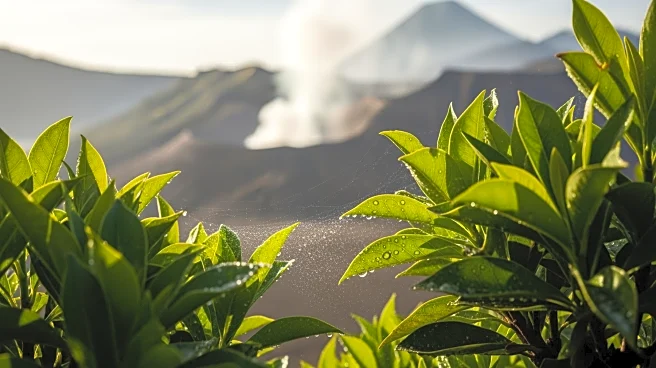What's Happening?
NASA has initiated the CRATER project, a collaborative effort with the University of Costa Rica, Chapman University, and Black Swift Technologies, to study volcanic emissions and their effects on vegetation. The project involves using an uncrewed aerial
system (UAS) to collect data on carbon dioxide emissions from volcanoes, specifically in Rincón de la Vieja National Park, Costa Rica. This research aims to enhance understanding of how increased carbon dioxide levels influence global vegetation patterns. The CRATER project represents a significant step in environmental research, combining advanced technology with ecological studies to address pressing climate concerns.
Why It's Important?
The CRATER project is crucial for understanding the environmental impact of volcanic emissions, particularly carbon dioxide, on global vegetation. This research can inform climate models and help predict ecological changes due to rising carbon dioxide levels. By utilizing advanced UAS technology, the project demonstrates innovative approaches to environmental monitoring, potentially influencing future research methodologies. The findings could have significant implications for climate policy and conservation strategies, aiding in the development of more effective measures to mitigate the effects of climate change on ecosystems.

















